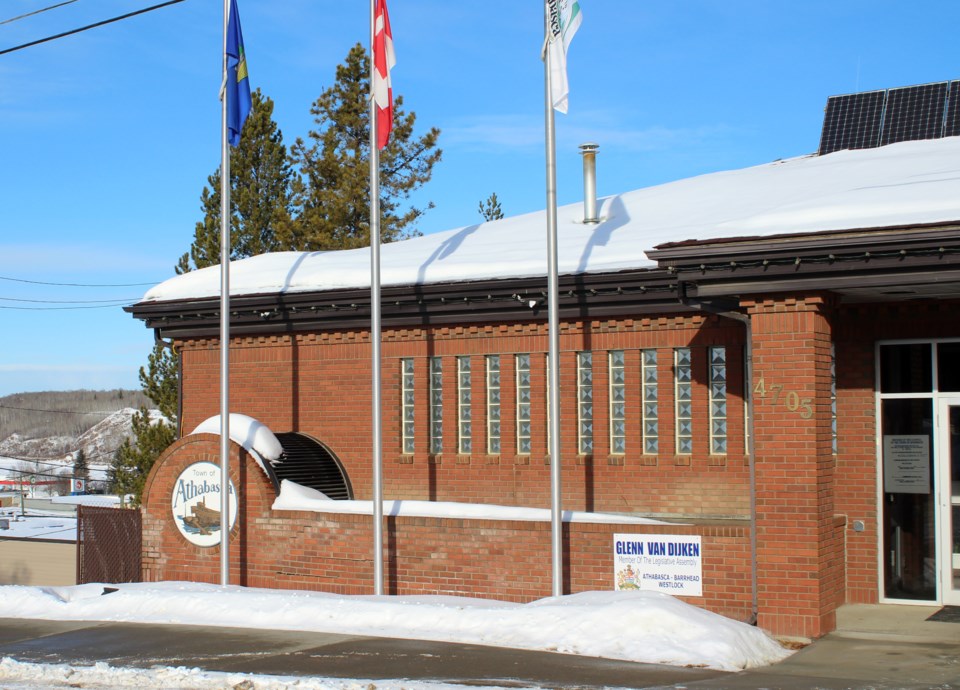ATHABASCA – Owners of “derelict and unoccupied” properties are going to be on the hook for double the property tax after Bylaw 004-2023 passed during the April 4 Town of Athabasca council meeting.
It took councillors just two minutes to unanimously pass final reading of Bylaw 004-2023, the Property Assessment Subclass Bylaw — first discussed during the Feb. 7 meeting with the town’s assessor, the bylaw allows the municipality to apply a “subclass” to properties that are derelict and unoccupied. This subclass would only apply come tax season, and under the bylaw’s current iteration, it would double the property tax paid on that lot.
“This gives us another tool in the toolbox to maintain the standard here, and if they’re not being taken care of, well now we have a bylaw for that,” said Coun. Ida Edwards.
After the Feb. 7 meeting, councillors asked administration to gather further information on what the subclasses would look like; CFO Jeff Dalley brought back some numbers to the Feb. 21 meeting, where he provided a range of options, with the lowest being the two-times multiplier that councillors decided to go with.
Property taxes are 8.94 per cent this year, so under the bylaw, owners of these properties would be subject to a 17.88 per cent tax. For example, if the property was assessed at $108,550.00, then the tax would cost them $1.918.21, according to documents presented by Dalley at the Feb. 21 meeting.
“We have no idea how effective this is going to be, but I guess we’re going to find out,” concluded mayor Rob Balay, before calling the final vote on the bylaw
Tax incentive bylaw
Councillors also gave Bylaw 005-2023 its second and third readings, with both passing 7-0.
The edict will reward commercial property owners that have increased the assessment value of their property by at least $250,000 with tax breaks. These breaks will also apply to anybody that has built a new commercial property that is assessed at $250,000 or more.
Initially brought forward Feb. 21 by CAO Rachel Ramey via a request for decision (RFD) that recommended councillors direct administration to draft a non-residential, municipal, tax incentive bylaw.
Coun. Sara Graling was a champion for the bylaw throughout discussions, taking some of her inspiration from a similar bylaw passed by Minburn County.
“The main goal is to encourage new commercial growth within the community,” said Graling. “They (the new bylaws) are methods to incentivize sustainable development.”
Under the new bylaw, owners of commercial properties can apply for a sliding scale of tax breaks over a three-year period after finishing their development. If the increase in value is between $250,000-$999,999, they’ll be eligible for a 75 per cent reduction in the first year, which decreases by 25 per cent each following year. If the assessment increase was more than $1,000,000, the tax breaks start at 100 per cent in Year 1, then decreases to 50 per cent three years after the expansion was finished.



